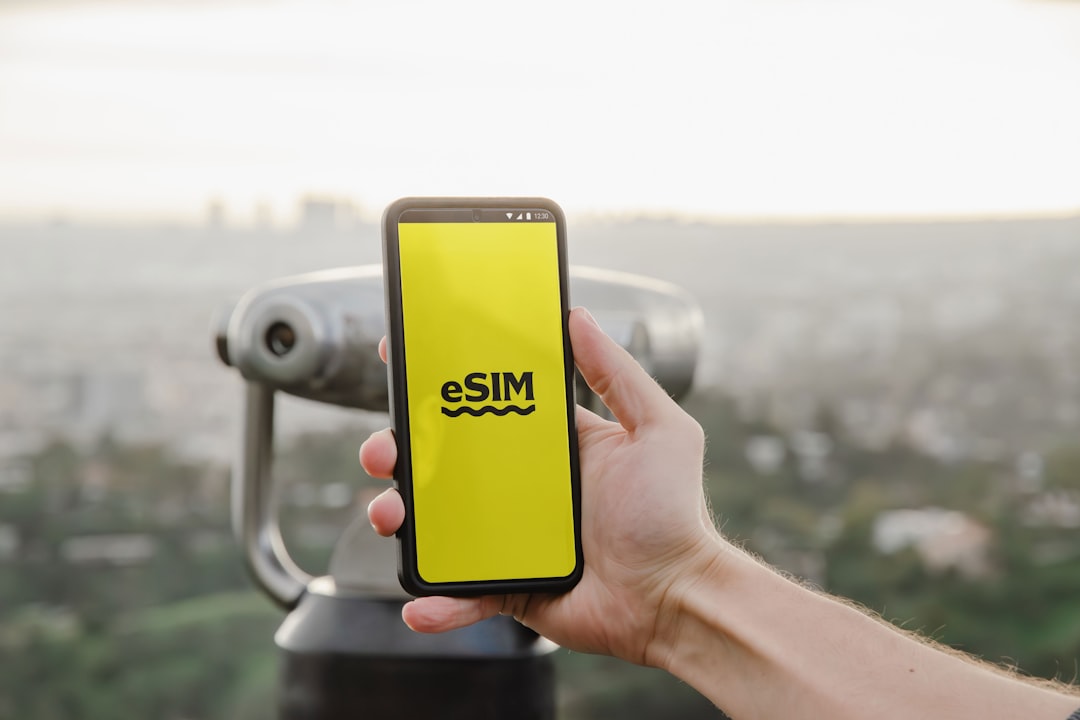Explore Asia’s Top Digital Nomad Hotspots by Region

Introduction
Asia has become the playground for digital nomads who crave a blend of reliable connectivity, affordable living, vibrant culture and a sense of adventure. From bustling metropolises where skyscrapers share the skyline with ancient temples, to sleepy island towns where sunrise paints the sea in pastel hues, the continent offers a spectrum of environments that can suit any work style and personality.
In this guide we explore the most popular digital‑nomad hotspots across Asia, grouped by region. For each destination we cover the essential factors that matter to remote workers – internet speed, coworking options, cost of living, visa friendliness, community vibe and lifestyle highlights. Whether you are a first‑time nomad looking for a low‑key launchpad or an experienced traveler hunting the next “digital‑nomad capital,” the information below will help you narrow down where to set up your laptop for the next few months or even years.
Southeast Asia
Southeast Asia remains the most iconic region for nomadic life. The combination of tropical climate, English‑friendly locals, and a well‑developed infrastructure for remote work makes it a magnet for freelancers, startup founders and location‑independent professionals.
Bangkok, Thailand
- Internet – Fiber broadband reaches most neighborhoods, delivering speeds of 100‑300 Mbps. Many cafés and hotels provide 5 GHz Wi‑Fi, which is stable for video calls.
- Coworking – The city hosts a dense network of spaces such as The Hive, WeWork, Hubba, and The Work Loft. Day passes start at 250 THB, while monthly memberships range from 6,000‑12,000 THB.
- Cost of Living – A modest lifestyle can be maintained on 30,000‑45,000 THB per month. This covers a shared apartment in the city centre, street food meals, a local transport card and occasional coworking days.
- Visa – The Tourist Visa (60 days) can be extended once for another 30 days. For longer stays, the SMART Visa (up to 4 years) targets tech professionals and entrepreneurs, while the Thailand Elite Visa offers 5‑10 year options for a premium fee.
- Community – Expat meet‑ups are frequent, especially around the Bangkok Digital Nomads Facebook group and monthly networking events at The Hive.
- Lifestyle – From rooftop bars overlooking the Chao Phraya River to weekend trips to Ayutthaya or the islands of the Gulf, Bangkok balances urban buzz with easy escapes.
Chiang Mai, Thailand
- Internet – The city enjoys reliable fiber connections with average speeds of 150‑250 Mbps. Many guesthouses and cafés provide backup LTE routers.
- Coworking – Flagship spaces include Punspace, Mana Coworking, and Yellow. Day passes start at 150 THB; monthly rates are 3,500‑6,500 THB.
- Cost of Living – A comfortable nomad can live on 20,000‑30,000 THB per month. This covers a one‑bedroom condo in the Old City, a mix of local meals and occasional Western restaurants, and a scooter lease.
- Visa – The Education Visa (through language schools) offers 90‑day extensions, while the Long‑Term Resident Visa (LTVP) for retirees and high‑spending individuals provides a 10‑year stay.
- Community – Chiang Mai is famed for its tight‑knit nomad community. Weekly “Nomad Night” meet‑ups at Punspace, monthly hikes organized by Nomads in Chiang Mai, and a thriving Slack channel keep connections alive.
- Lifestyle - Surrounded by mountains and rice paddies, the city offers a slower pace, night markets, Buddhist temples and easy access to trekking routes such as Doi Suthep and the Sticky Waterfall.
Ho Chi Minh City, Vietnam
- Internet – Broadband speeds average 80‑150 Mbps, and many cafés provide dedicated routers for a small fee.
- Coworking – Popular venues are The Hive Saigon, Dreamplex, CirCO, and Toong. Day passes are 120‑200 VND, while monthly memberships range from 2,500,000‑4,500,000 VND.
- Cost of Living – A digital nomad can manage on 15‑25 million VND monthly, covering a modern studio in District 1, street‑food breakfasts, motorbike fuel and coworking usage.
- Visa – The E‑Visa allows a 30‑day stay, extendable once. The Vietnam Business Visa (multiple‑entry) can be valid for up to 12 months, suitable for remote workers with a sponsor.
- Community – The city’s “Saigon Start‑up” scene fuels regular hackathons, meet‑ups at Saigon Innovation Hub, and language‑exchange evenings at The Deck Saigon.
- Lifestyle – A vibrant café culture, bustling night markets, and the historic Cu Chi Tunnels provide a mix of work‑friendly ambience and weekend exploration.
Da Nang, Vietnam
- Internet – Fiber connections deliver 200‑300 Mbps in most residential areas. Many beachfront cafés have backup 4G routers.
- Coworking – Spaces like CoWorking Danang, Enouvo Space, and The Work Loft Danang cater to freelancers and startup teams. Day passes cost 100‑150 VND; monthly rates are 2,200,000‑3,500,000 VND.
- Cost of Living – A mid‑range lifestyle runs about 12‑18 million VND per month, covering a beachfront apartment, local meals and scooter rental.
- Visa – The E‑Visa (30 days, extendable) works for most nomads. For longer stays, a Business Visa with a local sponsor is the standard route.
- Community – The city hosts a growing “Digital Nomad Danang” Facebook group, monthly tech talks at Enouvo Space, and surf‑and‑work retreats on My Khe Beach.
- Lifestyle – With its clean shoreline, marble mountains and easy access to Hoi An’s lantern‑lit streets, Da Nang offers a laid‑back vibe without sacrificing urban amenities.
Bali, Indonesia
- Internet – While the island’s rural parts can be spotty, the Ubud and Canggu corridors enjoy fiber up to 200 Mbps, supplemented by 4G LTE for redundancy.
- Coworking – Iconic hubs include Dojo Bali, Hubud, Outpost, and Bali Spirit. Day passes range from 50,000‑100,000 IDR; monthly memberships sit between 1,500,000‑2,500,000 IDR.
- Cost of Living – A comfortable budget is 12‑20 million IDR per month, covering a villa or shared house, local organic meals, scooter hire and coworking fees.
- Visa – The Visa on Arrival grants 30 days, extendable once. The Social‑Cultural Visa can be extended up to 180 days with monthly renewals, a popular choice for long‑term nomads.
- Community – Bali’s nomad scene is legendary. Weekly “Yoga & Work” sessions at Yoga Barn, monthly surf‑and‑code retreats at Bali Tech Community, and a plethora of meet‑ups in Canggu keep the network buzzing.
- Lifestyle – From sunrise surf at Echo Beach to rice‑terrace hikes in Ubud, temple festivals and world‑class wellness retreats, Bali blends productivity with soul‑nourishing experiences.
Kuala Lumpur, Malaysia
- Internet – National fiber backbone provides 100‑500 Mbps in most city districts. Many cafés offer 5 GHz Wi‑Fi with unlimited data.
- Coworking – The city hosts WORQ, Common Ground, SEED, and The Co.. Day passes start at 30 MYR; monthly memberships range from 600‑1,200 MYR.
- Cost of Living – A modest nomad can live on 3,500‑5,500 MYR monthly, covering a studio in Bukit Bintang, daily meals from hawker centres, and public transport.
- Visa – The Malaysia My Second Home (MM2H) program offers a 10‑year stay for qualifying applicants, while the Tourist Visa (90 days) can be extended once.
- Community – Kuala Lumpur Digital Nomads organise weekly brunch‑and‑work sessions, and the Tech in Asia community runs regular meet‑ups and hackathons.
- Lifestyle – A cosmopolitan mix of modern malls, colonial architecture, and nearby rainforest escapes (e.g., FRIM) gives a balanced urban‑nature rhythm.
Manila, Philippines
- Internet – Fiber connections deliver 150‑300 Mbps in central districts. Many cafés provide backup 4G routers for seamless connectivity.
- Coworking – Leading spaces include Impact Hub Manila, KMC Solutions, A Space, and The Company. Day passes are 300‑500 PHP; monthly memberships range from 6,000‑12,000 PHP.
- Cost of Living – A comfortable lifestyle costs 45,000‑70,000 PHP per month, covering a condo in Makati, regular meals at local eateries, and transport via Grab.
- Visa – The Visa Waiver (30 days) can be extended twice. For longer stays, a Special Work Permit (SWP) or 9‑month Tourist Visa extension is viable.
- Community – The Manila Nomads Facebook group hosts weekly coffee meet‑ups, and the Philippine Startup Ecosystem organises monthly pitch nights.
- Lifestyle – A lively nightlife scene, historic Intramuros, and easy island getaways (e.g., Boracay, Palawan) make Manila a gateway to both work and play.
East Asia
East Asia blends ultra‑modern infrastructure with deep cultural heritage. The region’s high‑speed internet, world‑class transportation and safety make it a top choice for nomads who value efficiency and convenience.
Tokyo, Japan
- Internet – Fiber optic services deliver 1 Gbps or more in central wards. Public Wi‑Fi is widespread, and most coworking venues provide redundant backup connections.
- Coworking – Premier spaces include WeWork Shibuya, The Hive Tokyo, Impact Hub Tokyo, and Creative Lounge MOV. Day passes start at 1,500 JPY; monthly memberships range from 30,000‑60,000 JPY.
- Cost of Living – Tokyo is the most expensive Asian hub. A lean budget of 150,000‑200,000 JPY per month can cover a small apartment in Kichijoji, groceries, and a commuter rail pass.
- Visa – The Designated Activities Visa (for freelancers) can be issued for up to 1 year with a sponsor. The Temporary Visitor Visa (90 days) is visa‑free for many nationalities but cannot be extended for work.
- Community – The Tokyo Freelancers Slack channel, monthly meet‑ups at Impact Hub, and language‑exchange cafés in Nakameguro create a supportive network.
- Lifestyle – From sushi breakfasts at Tsukiji to night‑time karaoke in Shinjuku, plus easy day‑trips to Mt. Fuji or Nikko, Tokyo offers endless stimulation.
Seoul, South Korea
- Internet – Nationwide fiber provides 500 Mbps‑1 Gbps speeds, with excellent coverage in districts such as Gangnam, Hongdae, and Itaewon.
- Coworking – Notable venues include FastFive, Hive Arena, Sparkplus, and WeWork Seoul. Day passes start at 15,000 KRW; monthly rates are 250,000‑500,000 KRW.
- Cost of Living – A modest lifestyle can be sustained on 1,200,000‑1,800,000 KRW per month, covering a studio in Mapo, street‑food meals, and public transport.
- Visa – The D‑10 Job‑Seeking Visa (up to 6 months) is often used by remote workers, while the Corporate‑Sponsored Visa can be extended for up to 2 years.
- Community – The Seoul Nomads Facebook group organizes monthly coworking brunches, and the Seoul Tech meetup circuit provides regular networking events.
- Lifestyle – A blend of high‑tech districts, traditional palaces, and vibrant nightlife in Hongdae makes Seoul a dynamic place to work and explore.
Taipei, Taiwan
- Internet – Fiber broadband offers 300‑500 Mbps in most neighborhoods. Many cafés provide fast 5 GHz Wi‑Fi with unlimited data.
- Coworking – Key spaces include Future Ward, CLBC, The Hive Taipei, and Workspot. Day passes are 300‑500 TWD; monthly memberships range from 5,000‑9,000 TWD.
- Cost of Living – A comfortable nomad can manage on 30,000‑45,000 TWD monthly, covering a one‑bedroom apartment in Da’an, night‑market meals, and a scooter lease.
- Visa – The Visitor Visa (90 days) is visa‑free for many nationalities and can be extended once. The Gold Card (for skilled professionals) grants up to 3 years of stay and work rights.
- Community – The Taipei Digital Nomads Slack channel, weekly meet‑ups at Future Ward, and monthly tech talks at Taipei Tech Meetup keep the scene active.
- Lifestyle – From the bustling Shilin Night Market to hiking Elephant Mountain, and easy weekend trips to Jiufen or Kenting, Taipei balances urban convenience with natural escapes.
Hong Kong
- Internet – Ultra‑fast fiber networks deliver 1 Gbps+ speeds across the territory. Public Wi‑Fi is abundant in cafés and malls.
- Coworking – Leading venues include The Hive Hong Kong, WeWork Central, The Executive Centre, and The Desk. Day passes start at 200 HKD; monthly memberships range from 3,000‑5,000 HKD.
- Cost of Living – Hong Kong is among the priciest cities. A lean budget of 15,000‑20,000 HKD per month can cover a small studio in Sai Ying Pun, groceries, and transport via the MTR.
- Visa – The Employment Visa is typically sponsor‑based, but the Quality Migrant Admission Scheme (QMAS) offers a points‑based pathway for high‑skill professionals, granting up to 2 years of stay.
- Community – The Hong Kong Nomads Meetup group hosts monthly networking events, while the StartupHK ecosystem provides regular pitch nights.
- Lifestyle – A global financial hub with a vibrant food scene, hiking trails on Lantau Island, and quick ferries to Macau, Hong Kong offers a high‑energy environment for ambitious nomads.
Osaka, Japan
- Internet – Fiber connections deliver 1 Gbps speeds throughout the city. Most coworking spaces provide robust backup systems.
- Coworking – Popular options are The Hive Osaka, Impact Hub Osaka, Co&Co, and Regus Osaka. Day passes start at 1,200 JPY; monthly memberships range from 25,000‑45,000 JPY.
- Cost of Living – Osaka is cheaper than Tokyo. A modest budget of 120,000‑150,000 JPY per month can cover a one‑room apartment in Namba, meals at local izakayas, and a subway pass.
- Visa – Same as Tokyo: Designated Activities Visa for freelancers or the Temporary Visitor Visa (90 days) for short stays.
- Community – The Osaka Remote Workers Facebook group arranges monthly coworking gatherings, and the Osaka Startup Week provides networking opportunities.
- Lifestyle – Known for its street food (takoyaki, okonomiyaki), vibrant nightlife in Shinsekai, and easy access to cultural sites like Osaka Castle and nearby Kyoto.
South Asia
South Asia presents a blend of bustling metros, tranquil hill stations and emerging tech ecosystems. While internet reliability can vary, many cities now offer dedicated coworking spaces and visa options that cater to remote professionals.
Bengaluru, India
- Internet – Fiber broadband delivers 100‑300 Mbps in most residential areas. Many coworking hubs have redundant 4G LTE lines.
- Coworking – Key venues include WeWork Bengaluru, CoWrks, 91springboard, and IndiQube. Day passes start at 500 INR; monthly memberships range from 8,000‑15,000 INR.
- Cost of Living – A comfortable nomad can live on 50,000‑80,000 INR per month, covering a one‑bedroom apartment in Koramangala, regular meals at Food Courts, and a scooter lease.
- Visa – The e‑Tourist Visa allows 60 days, extendable once. For longer stays, the Employment Visa (with a sponsoring Indian company) or the Startup Visa (for founders) are options.
- Community – Bengaluru is called the “Silicon Valley of India.” The Bengaluru Digital Nomads Slack channel, weekly meet‑ups at CoWrks, and regular hackathons keep the ecosystem buzzing.
- Lifestyle – A mix of tech parks, craft breweries, and nearby nature escapes such as Nandi Hills provides balance between work and recreation.
Hyderabad, India
- Internet – High‑speed fiber (100‑250 Mbps) is common in IT corridors. Many cafés provide backup 4G.
- Coworking – Notable spaces include WeWork Hyderabad, Regus, Cocoon, and The Hive. Day passes start at 400 INR; monthly rates range from 7,000‑12,000 INR.
- Cost of Living – A modest budget of 40,000‑60,000 INR per month can cover a studio in Banjara Hills, street‑food lunches, and public transport.
- Visa – Same e‑Tourist Visa as Bengaluru. The Employment Visa is also applicable for longer stays.
- Community – The Hyderabad Remote Workers group organizes monthly coffee meet‑ups, and the Hyderabad Tech Meetups host regular speaker series.
- Lifestyle – Famous for its biryani, historic Charminar, and tech parks, Hyderabad offers a blend of heritage and modernity.
Kuala Lumpur, Malaysia (repeated for completeness)
See the Southeast Asia section for detailed information.
Colombo, Sri Lanka
- Internet – Fiber broadband delivers 50‑150 Mbps in central districts. Many cafés have backup 4G routers.
- Coworking – Popular venues are HypeHub, The Works, Regus Colombo, and Colombo Co‑Work. Day passes start at 1,200 LKR; monthly memberships range from 15,000‑25,000 LKR.
- Cost of Living – A comfortable nomad can manage on 80,000‑120,000 LKR per month, covering a one‑bedroom apartment in Fort, meals at local eateries, and a scooter.
- Visa – The Electronic Travel Authorization (ETA) grants 30 days, extendable once. For longer stays, the Resident Guest Pass (up to 180 days) is an option for remote workers.
- Community – The Colombo Digital Nomads Facebook group arranges monthly meet‑ups at HypeHub, and the Sri Lanka Tech Community hosts quarterly hackathons.
- Lifestyle – From colonial architecture to surf spots at Arugam Bay, and tea plantations in the highlands, Colombo offers diverse experiences within a short distance.
Kathmandu, Nepal
- Internet – Broadband speeds average 30‑80 Mbps, with many cafés providing 4G LTE as backup.
- Coworking – Key spaces include Impact Hub Kathmandu, Work Nepal, and The Hive. Day passes start at 1,500 NPR; monthly memberships range from 8,000‑12,000 NPR.
- Cost of Living – A lean budget of 45,000‑70,000 NPR per month can cover a one‑bedroom apartment in Thamel, local meals, and a motorbike.
- Visa – The Tourist Visa (15‑30 days) can be extended up to 150 days in total. For longer stays, a Non‑Resident Visa (NRN) may be obtained with proof of income.
- Community – The Kathmandu Nomads Telegram channel shares weekly coworking events, while the Digital Nomad Nepal meetup hosts monthly coffee gatherings.
- Lifestyle – Surrounded by the Himalayas, Kathmandu offers trekking opportunities (e.g., Langtang, Everest Base Camp) and a vibrant cultural scene with temples, festivals and bustling bazaars.
Central Asia
Central Asia is emerging as a frontier for digital nomads seeking dramatic landscapes, lower costs and a slower pace of life. While infrastructure is still catching up, several cities now provide the essentials for remote work.
Almaty, Kazakhstan
- Internet – Fiber broadband offers 100‑250 Mbps in the city centre. Many coworking spaces have backup 4G lines.
- Coworking – Notable venues include Regus Almaty, Bunker 38, Co‑Lab, and Impact Hub Almaty. Day passes start at 2,000 KZT; monthly memberships range from 15,000‑25,000 KZT.
- Cost of Living – A modest lifestyle can be maintained on 120,000‑180,000 KZT per month, covering a one‑bedroom apartment in Medeu, local meals, and a metro pass.
- Visa – The e‑Visa grants 30 days, extendable once. For longer stays, a Work Visa (requiring a local sponsor) or the Kazakhstan Residence Permit (for investors) are options.
- Community – The Almaty Digital Nomads Facebook group hosts monthly coworking brunches, and the Kazakhstan Tech Meetup organises quarterly conferences.
- Lifestyle – Nestled against the Tien Shan mountains, Almaty offers ski resorts, hiking trails, and a lively café culture infused with Kazakh hospitality.
Bishkek, Kyrgyzstan
- Internet – Fiber speeds range from 50‑150 Mbps; many cafés supplement with 4G LTE.
- Coworking – Spaces such as Bishkek Hub, Co‑Working Space Kyrgyzstan, and Impact Hub Bishkek provide flexible desks. Day passes start at 1,500 KGS; monthly rates are 8,000‑12,000 KGS.
- Cost of Living – A comfortable budget of 70,000‑100,000 KGS per month can cover a central apartment, local cuisine, and a scooter.
- Visa – The e‑Visa allows 30 days, extendable once. For longer stays, a Work Visa or the Kyrgyzstan Residence Permit (investment‑based) are viable routes.
- Community – The Bishkek Nomads Telegram channel shares coworking events, and the Kyrgyzstan Startup Community runs monthly meet‑ups.
- Lifestyle – Surrounded by the Alatau mountains, Bishkek offers easy access to trekking, horse‑riding tours, and a laid‑back café scene.
Tashkent, Uzbekistan
- Internet – Fiber broadband delivers 100‑200 Mbps in the capital. Many coworking spaces keep redundant connections to ensure uptime.
- Coworking – Popular venues include Regus Tashkent, Co‑Work Uzbekistan, and The Hive Tashkent. Day passes start at 30 UZS; monthly memberships range from 300‑500 UZS.
- Cost of Living – A modest lifestyle can be sustained on 2,500,000‑4,000,000 UZS per month, covering a one‑bedroom flat in Yunusabad, meals at local shashlik stalls, and public transport.
- Visa – The e‑Visa grants 30 days, extendable once. For extended periods, a Work Visa (with a local sponsor) or a Residence Permit for investors are available.
- Community – The Tashkent Digital Nomads Facebook group organises monthly networking events, and the Uzbekistan Tech Hub hosts quarterly hackathons.
- Lifestyle – A city of historic madrassas, bustling bazaars, and modern cafés, Tashkent provides a unique mix of old world charm and emerging tech culture.
How to Choose the Right Asian Hub
- Internet Reliability – Prioritise cities with fiber broadband and backup LTE options. Look for coworking spaces that advertise redundant connections.
- Visa Flexibility – Check the length of stay allowed on a tourist visa, the ease of extensions, and the availability of digital‑nomad‑specific visas or residence permits.
- Cost of Living vs. Lifestyle – Balance your budget with the type of environment you desire – bustling metropolis, beach town or mountain retreat.
- Community Presence – A strong nomad community can ease the transition. Search for active Facebook groups, Slack channels, or regular meet‑ups.
- Safety and Healthcare – Review travel advisories, local healthcare quality, and insurance options before committing long‑term.
Practical Tips for Working Remotely in Asia
- Backup Connectivity – Keep a local SIM card with a generous data plan. In many countries (Thailand, Vietnam, Indonesia) prepaid 4G data is cheap and can serve as a fallback when Wi‑Fi is unstable.
- Coworking Memberships – If you plan to stay 2‑3 months, a monthly membership often pays off compared to daily passes. Many spaces offer “flex” plans that let you switch locations within a city.
- Banking and Payments – Open a local bank account where possible to avoid foreign‑transaction fees. Services like Wise, Revolut, and Payoneer are widely accepted for receiving client payments.
- Time‑Zone Management – Most Asian hubs are 5‑8 hours ahead of Europe and 12‑13 hours ahead of the US East Coast. Use tools like Calendly to set availability windows that respect both your clients and your personal rhythm.
- Health Insurance – Choose a plan that covers medical evacuation and outpatient care in the region. International providers such as Cigna Global, Allianz, or SafetyWing are popular among nomads.
- Local Culture – Respect local customs, dress codes, and business etiquette. Learning a few basic phrases in the native language can open doors and foster goodwill.
Final Thoughts
Asia’s digital‑nomad landscape is as diverse as the continent itself. From the neon streets of Bangkok and the tranquil rice terraces of Bali, to the high‑speed corridors of Tokyo and the rugged peaks surrounding Almaty, each hotspot offers a distinct blend of connectivity, community and culture. By weighing factors such as internet quality, visa options, cost of living and the presence of a supportive nomad network, you can pinpoint the city that aligns with both your professional needs and personal aspirations.
The beauty of remote work lies in its flexibility – you can start in one region, soak up its rhythm, then hop to the next when curiosity calls. Use this guide as a launchpad, experiment with short‑term stays, and let the experiences shape your ultimate digital‑nomad journey across Asia. Safe travels and happy coding!
Random Posts

Ultimate Checklist for Choosing a European Nomad Destination
Use our ultimate checklist to pick the ideal European nomad city by comparing cost, visa rules, internet speed, lifestyle vibe, safety and community for a smart, hassle free move.
5 days ago

Legal Must Haves for the Modern Nomadic Lifestyle
Discover the essential legal checklist for modern nomads: the right visas, tax strategies, business compliance, insurance coverage, and personal protection so you can travel freely without legal worries.
2 months ago

Optimizing Income and Taxes for Location Independent Professionals
Learn how digital nomads can boost earnings and cut taxes by picking tax-friendly residency, structuring income, leveraging treaties, shielding assets, and keeping audit-ready records
2 months ago

How Much Does Bali Really Cost for Remote Workers
Discover the real monthly cost of living in Bali as a remote worker, from affordable housing and coworking fees to hidden expenses, so you can budget confidently and choose the right spot for work and life
2 months ago

How to Choose the Perfect Remote Work Hub and Fly Smart
Learn how to pick the ideal remote-work hub by weighing internet, cost, safety and community, then master smart flight strategies to cut costs, avoid fatigue and travel sustainably
1 month ago
Latest Posts

Essential Software Every Remote Professional Should Use
Master remote work with essential tools: instant messaging like Slack, high definition video calls such as Zoom, and asynchronous voice apps. Streamline communication, stay connected and boost productivity.
1 day ago

Mastering Remote Work Productivity for Digital Nomads and Freelancers
Learn proven habits, tools, and tactics that help digital nomads and freelancers stay focused, deliver quality work, and maintain a sustainable lifestyle while traveling the world.
1 day ago

Tech‑Friendly European Towns Perfect for Remote Living
Discover Europe’s best small towns where fast internet, affordable living and vibrant tech communities let you work remotely while soaking up historic charm, lakeside views or mountain air.
1 day ago